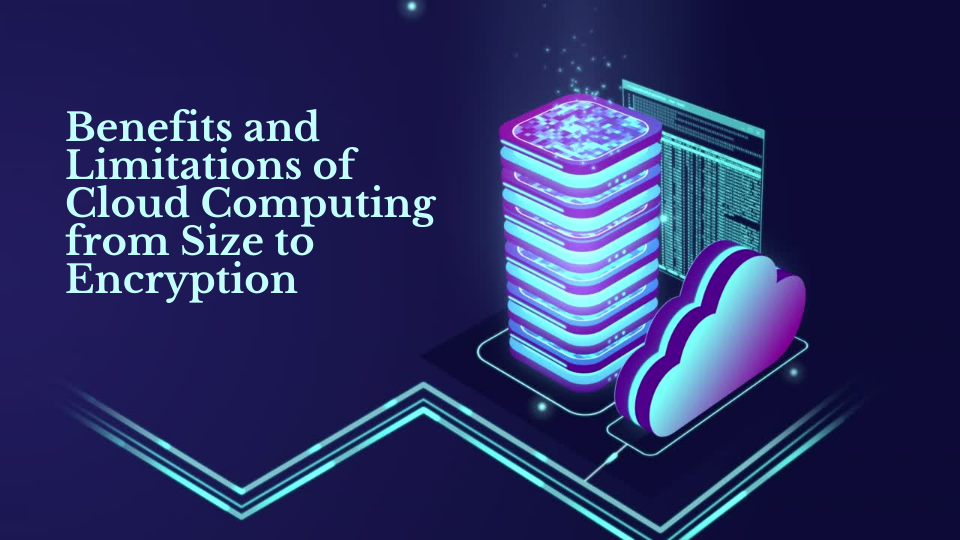Benefits and Limitations of Cloud Computing, from Size to Encryption

Cloud computing has revolutionized the way businesses and individuals store, access, and manage data. Offering flexibility, scalability, and cost-effectiveness, the cloud has become an integral part of modern digital infrastructure. However, like all technologies, cloud computing comes with its set of benefits and limitations. In this comprehensive guide, we’ll explore the advantages of cloud computing while also delving into its constraints, from size limitations to encryption challenges.
Also Read:- An In-Depth Guide to Cloud Computing and Its Varieties
Understanding Cloud Computing
At its core, cloud computing refers to the delivery of computing services, including storage, processing, and networking, over the internet. Instead of relying on local servers or personal devices, users can access these services from cloud providers, ensuring flexibility and scalability.
The Silver Lining: Benefits of Cloud Computing
- Cost-Efficiency: Eliminates the need for hefty investments in physical infrastructure, leading to significant cost savings.
- Scalability: Users can easily scale up or down based on their requirements.
- Accessibility: Data and applications are accessible from anywhere with an internet connection.
- Disaster Recovery: Cloud providers often offer backup solutions, ensuring data safety in case of mishaps.
Size Matters: Limitations Concerning Cloud Storage Size
While cloud storage offers vast spaces for data, there are still limitations. Depending on the service provider and the chosen plan, there might be restrictions on individual file sizes or overall storage capacity. For businesses with massive data needs, understanding these size limitations is crucial to ensure seamless operations.
Decoding Encryption: Challenges in Cloud Computing
Encryption is the bedrock of data security, especially in the cloud. However, there are challenges:
- Key Management: Managing encryption keys can be complex, especially when dealing with multiple cloud services.
- Performance Overhead: Encryption processes can sometimes slow down data access speeds.
- Regulatory Compliance: Different regions have varying regulations concerning data encryption, making it challenging for global businesses.
Weighing the Pros and Cons: Overall Limitations of Cloud Computing
- Dependency on Internet Connectivity: Without a stable internet connection, accessing cloud services becomes challenging.
- Security Concerns: While providers invest heavily in security, the cloud is still vulnerable to breaches.
- Downtime: Even the best cloud service providers face downtime, affecting business operations.
- Limited Control: Since the infrastructure belongs to the provider, users have limited control over certain aspects.
Conclusion
Cloud computing, with its myriad of benefits, has undeniably transformed the digital landscape. However, understanding its limitations, from size constraints to encryption challenges, is crucial for optimal utilization. By weighing the pros and cons, businesses and individuals can harness the cloud’s power while navigating its potential pitfalls effectively.





